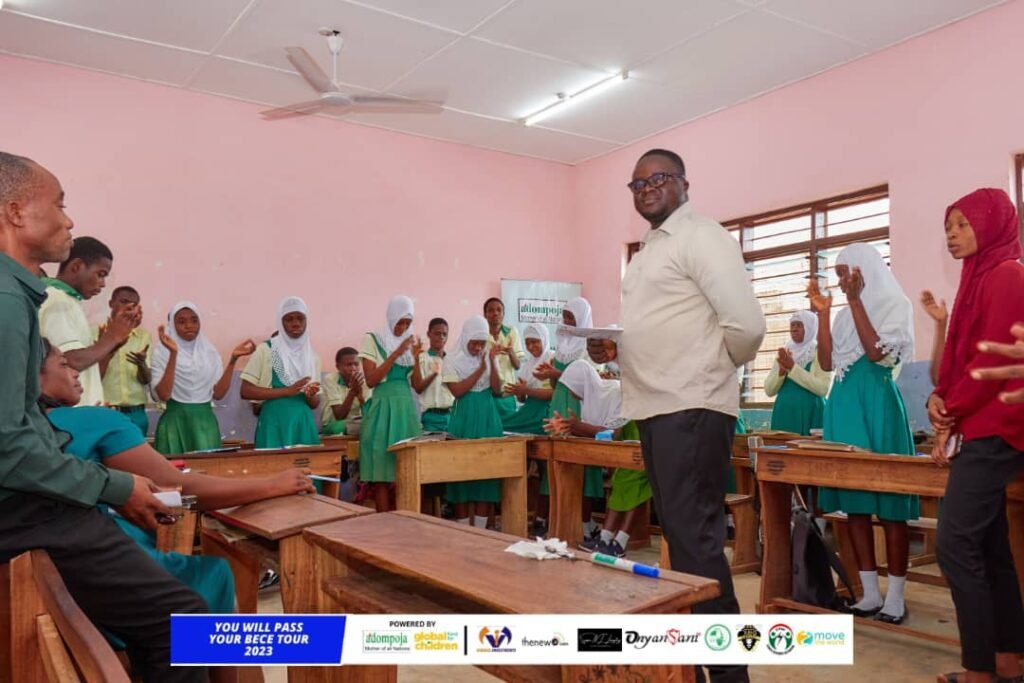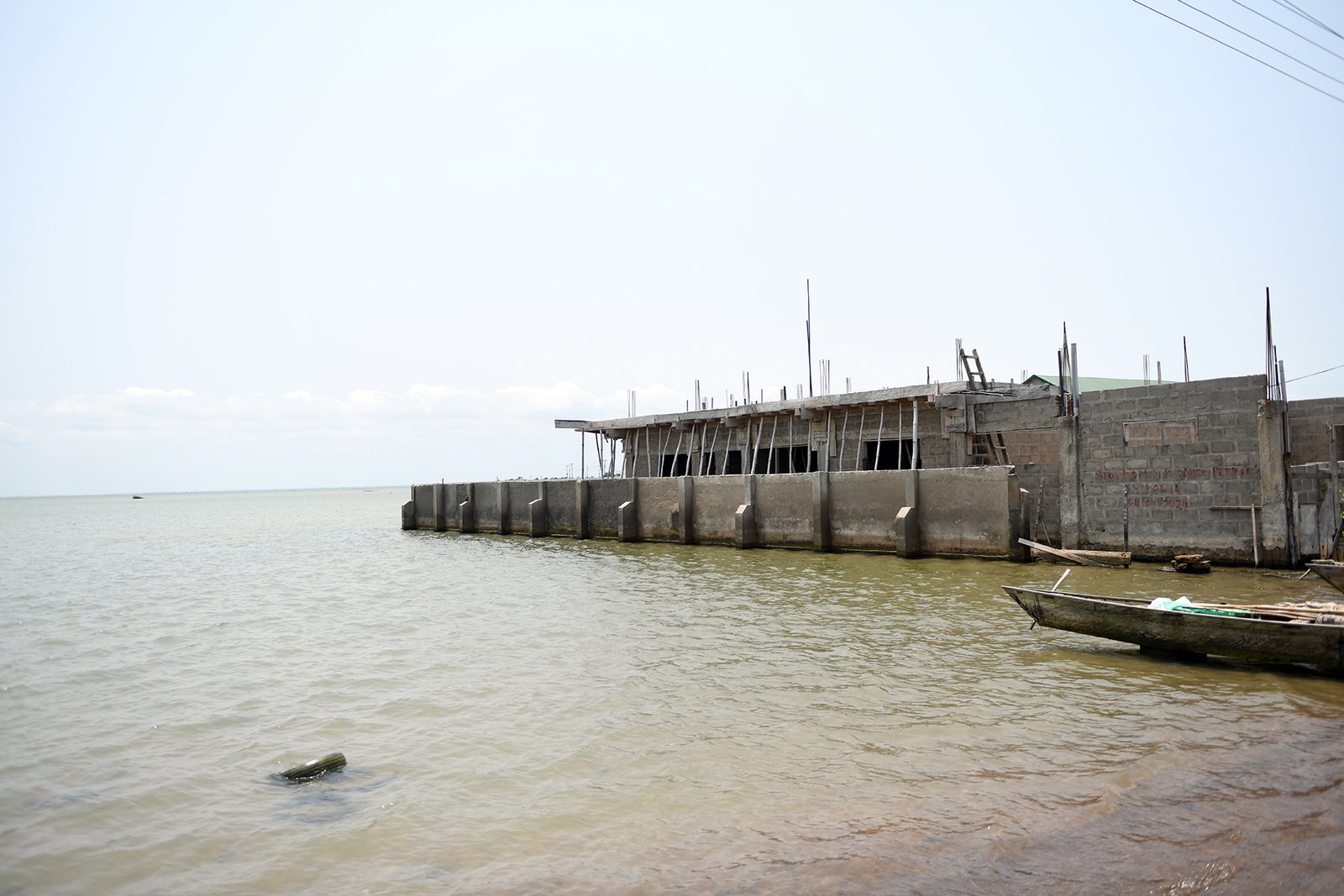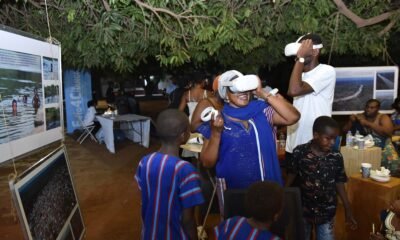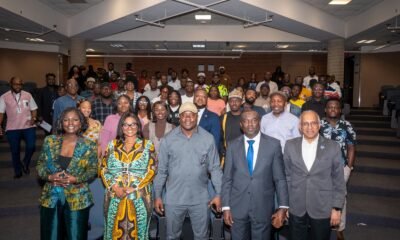News
Abubakar Zico Newton changing educational narrative in Madina Zongo

Chancing on a report indicating that people with pre-school experience were likely to be in school far more than those without pre-school education was the spark Ishaq Abubakar Zico Newton needed to turn around the fortunes of young people in Madina Zongo.


Growing up in the same community where pre-school was not valued as he himself was not a beneficiary, Ishaq Abubakar Zico Newton decided to change the narrative of the children with the help of his mother’s already established foundation.
The foundation started on the compound of his home as an afternoon classes for children in the community.
“It was the brainchild of my aunt who never had the opportunity to go to school but always felt that education was going to be the game-changer in the near future.”


With this in mind, his aunt started a free after school classes in the afternoon.
The classes helped children with their home works as their parents could neither read nor write. This single act by his aunt really impacted the lives of most children in the community.

“My mother took over after the death of my aunty when she returned from Germany and thought it wise to create a foundation around it. She named it ‘Mother for all Foundation.’’’
She later took the foundation to another level by supporting the foundation with books for the children and paying the teacher to continue the afternoon classes.
In 2010, King Zico, as he is affectionately called in the community, felt the need to support his mother’s idea and take the foundation a notch higher.

With his educational background, he turned it into a pre-school for children in Madina Zongo where children from the ages of two to five years have access to free pre-school education.
Currently, there are about 250 children in the school which initially started with only two children.
“The goal of the foundation is to educate and also help improve on the educational standard of the people within Madina Zongo,” he said.
According to Mr Newton, most of the people supporting the foundation were beneficiaries of the afternoon classes started by his aunt.

He said the foundation embarked on several projects including a ‘Readcamp’ aimed at enhancing the literacy skills of school pupils, a play-based training programme for educators and facilitators with innovative tools to transform classrooms.
“Other projects included mask up and sanitise campaign and covid-19 food relief project,” he stated.
He said that over the period of eight years, close to thousand youths and children have had their lives transformed through the foundation.
Background
Zico loves to describe himself as Zongo boy who at a point realised that actors of change are community people who wish to see the change in their communities.
He grew up from a very deprived family where he and his siblings as well as friends had to go look for mangoes in the bush and sell.
At other times “we looked for ‘alumi’ in the gutters and in people’s homes and at times we have just pick peoples cooking utensils at their blind side, crash them and sell,” adding that “that was how we survived.”
Education
King Zico never had a pre-school experience. He started school at Gospel International School in Madina Estates. After owing so much in terms of fees, he secured a scholarship from the school.
This followed the headmaster’s decision to allow him attend the school for free because it was obvious he couldn’t pay.
He move from there to the Faith Community Baptist School where he had my Junior High School (JHS) education

King Zico continued to the West African Secondary School (WASS) but could not write the final examination because “my name was synonymous to school fees arrears.”
King Zico later registered for Nov/ Dec and continued to the Institute of Professional Studies (IPS) now University of Professional Studies, Accra (UPSA) where he studied Diploma in Business Studies (DBS) with accounting option.
“I was of the hope that I will be able to secure a job with the certificate, but unfortunately, I did not, so I ended up on the streets again and did some basic jobs and finally enrolled myself into the African University College of Communication.’’
Hobby
At his spare time, King Zico loves to listen to music and enjoys rice and stew at any given time.
By Esinam Jemima Kuatsinu
News
Swallowed by the Sea! …Keta’s coastal lines, landmarks, efforts to preserve heritage

The Atlantic Ocean is no longer a distant blue horizon for the people of Keta.
It now circles around their doorsteps, uninvited, unrelenting, pulling down walls and other structures, erasing memories, and threatening lives.
Hovering precariously between the restless sea and the Keta Lagoon, this once-thriving coastal town is slowly being obliterated.




Salt water has become both a physical and metaphorical threat, dissolving the town’s past as fast as it claims its future.
Madam Aku Atitso, 62, lives in a crumbling former Prisons Service quarters – one of the few structures still standing on the eroded stretch of Queen Street.


She sits quietly at the entrance, preparing a modest breakfast for herself and her granddaughter.
The air is thick with salt and silence. “The sea took everything,” she says softly. “My husband’s nets, our mattress, our memories all gone overnight.” Her voice trembles. “This place too is dying. But it’s the last place with a roof over my head.”
A few metres away, Aunty Esinam, 79, watches the sea from a low stool beside a wooden shelter. Her eyes do not blink. “That spot,” she points, “used to be someone’s living room, a whole family lived there”.

It’s not just homes that are vanishing. Landmarks that anchored Keta’s cultural identity are disappearing one after another. The once-imposing Fort Prinzenstein, a haunting relic of the transatlantic slave trade is now more of a ruin than a monument.

the encroaching waters along Keta’s
coast.
encroaching waters along Keta’s coast
The colonial-era Bremen factory, the old cinema where generations of children once laughed at flickering black-and-white films is also gone.
Queen Street, once the town’s bustling backbone, is now a watery corridor choked with debris.
Standing atop a section of the sea defence wall, 69-year-old retired teacher Efo Kwasi Agbeko surveys what remains.
“The first police station is mostly gone,” he says, gesturing part of the building stuck in the sea sand, only ruins and a few rooms remain.

“This town is fighting, but the sea is winning,” he said.
Even the Cape St. Paul Lighthouse, Keta’s historic sentinel, leans perilously toward the water, and fishermen say holes in the shore are opening more frequently, sometimes every week.
That leaves a thick cloud of uncertainty hanging around the historic town of Keta.
Once upon a time, it was a vibrant town noted for business but currently left with ruins with a few of the residents watching in awe the sea’s devastation.
From: Geoffrey Kwame Buta, Keta, Volta Region
News
Ghanaians climax Easter with fun-filled activities

Christians around the world and other faith based groups last Monday climaxed the Easter celebration with a number of fun-filled outdoor and indoor activities.
With streets empty, fun seekers stormed church premises where picnics were held while others partied in many ways.
Others spent the day at the various beaches and music and film shows occupying the others.

velleyball competition

at the Laboma Beach
Church in Tema Community 8 engaged
in a number of activities including the
popular draught competition
At the churches, participants engaged in bible reading, football, volleyball, playing cards, table tennis, horse racing, bouncing castles, swimming and oware.



one of the picnic venues
Others played ludo, tag of war, lime and spoon, draught, music competitions among others.
The Spectator captured some of the exciting scenes around Accra-Tema for the benefit of readers.
Story & pictures by Victor A. Buxton















